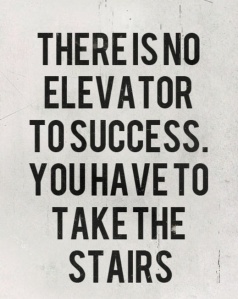After taking an extended hiatus from driving lessons to complete my last semester of undergraduate courses and to do an internship in Washington D.C., I will be getting behind the wheel again tonight. And to tell you the truth, although I’m definitely excited, I’m also just a bit terrified.
I am learning to drive an adaptive vehicle with hand controls for the gas and brake, a ramp that opens on the side so I can enter the vehicle, and a power adjustable driver’s seat that moves and rotates so I can easily transfer. I had always hoped the process of driving would be a breeze for me; I would simply put one hand on the gas and brake, my other hand on the steering wheel, and off I’d go into the sunset. But, that obviously isn’t quite how driving works, so I’ve experienced some bumps in the road – pun intended. While I know that driving requires tons practice for anyone, disabled or not, finally getting my license holds particular urgency for me. Unlike most of my friends who were cruising with their learner’s permits and licenses by the time we finished high school, I spent the vast majority of my senior year stuck in my house recovering from major spinal surgery. By the time I could finally turn my neck enough for it to be possible to check side view mirrors, my friends were already driving circles around me.
I was jealous of them for all the typical teenage reasons – driving was the cool thing to do – but there were some other deep-seated emotions that were unearthed by being the only one who couldn’t drive. My dad has practically been my chauffeur for 22 years, and though I love him and appreciate everything he does for me immensely, by high school it stopped being cool to have my dad drive me to go hang out somewhere on a Friday night. My friends tried to help when they could by offering to drive me places, but this posed challenges too. Since I have a mobility-related disability, it’s not particularly easy to get in and out of cars. If I’m getting a ride in a sedan, I can climb in with a boost or the help of a step stool. When someone offers me a ride in a truck or a van, forget it. And Long Island certainly isn’t known for speedy, reliable, accessible public transportation. So, by default, I’d often get left out of fun plans, or have to leave early so my dad wouldn’t have to come out to get me at all hours of the night.
You’d think all of this would have motivated me to learn to drive the second it was possible. Yet, instead of getting behind the wheel as soon as it was safe for me, my family and I kept finding excuses to put off lessons. Of course, it wasn’t all our fault, since registering for adaptive driving lessons through the state can be quite a lengthy process. Also, there’s practically a monopoly on adaptive driver’s education on Long Island, because there are very few people in the business. This makes it rather difficult, because my dad will have to leave work early every weeknight to drive me to a place that’s an hour away from my house just so I can take lessons. This isn’t exactly a model of an accessible situation. Actually, it’s frustratingly ironic that getting to and from driving lessons necessitates knowing how to drive. Because of so many complications, even though I did begin driving lessons last year, there have been a few false starts that prevented me from attending lessons with any regularity. However, I am fully aware that in spite of some difficulties, I definitely didn’t pursue driving as much as I should have. Though I could have made time for it, I became complacent, secretly feeling relieved that other life events meant I wouldn’t have to be on the road. I was letting my strong anxiety win over my strong desire for independence. I’m generally a confident person and fast learner, so the anxiety I feel about driving is unusual for me. That being said, it is human to experience certain fears, and I know that with hard work and perseverance, I can overcome mine.
With driving lessons beginning again tonight, for real this time, I’ve had to do some soul searching. Is anxiety a good reason to hinder my own independence? It’s bad enough that society too often hinders my independence due to attitudinal barriers and lack of access for disabled people; I shouldn’t hold myself back too. I still feel anxiety because I may mess up, and I am pressuring myself, because time is of the essence to be successful in getting my license. Having a driver’s license won’t just make it easier to hang out with my friends. It will open up a world of possibilities for everything from being able to go to a store at my own will, to being able to search for employment in a wider range of locations because I’ll more easily be able to get myself to and from a place of work.
I realize that driving is not an option for all disabled people, so I am truly lucky that it’s an option for me. And I think my driving anxieties can in some ways translate to anxieties that stem from striving for any form of independence – be it leaving home, advocating for yourself, or any other movement, no matter how small, in the direction of being as independent as possible. Ultimately, you just have to get out there and go for it, reminding yourself that although moving forward and accelerating with the gas pedal seems scary, you’ll eventually reap the sweet rewards of gaining more independence.


